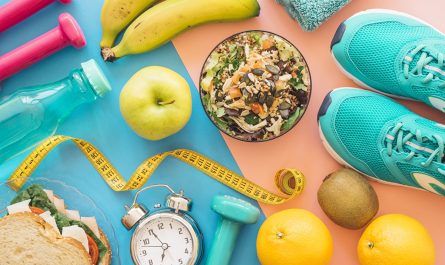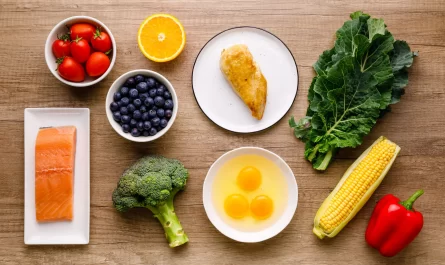Managing diabetes can be a challenging journey, but it’s essential to stay on top of your health to avoid complications and improve your quality of life. One of the most important factors in diabetes management is maintaining a healthy diet. In this blog post, we’ve provided two diet charts – one vegetarian and one non-vegetarian – that are tailored to the Indian context.
These diet charts include foods that help to manage blood sugar levels, provide essential nutrients, and maintain a healthy weight. By following these guidelines and working with your healthcare professional, you can take control of your diabetes and live a healthier life.
Veg Diet Chart
| Meal | Food | Quantity |
|---|---|---|
| Breakfast | Vegetable poha (flattened rice) | 1 cup |
| Low-fat milk | 1 cup | |
| Small banana | 1 | |
| Mid-morning snack | Roasted chana (chickpeas) | 1 small bowl |
| Carrot sticks | 1 small bowl | |
| Lunch | Whole wheat chapati | 2 |
| Palak paneer (spinach with cottage cheese) | 1 small bowl | |
| Brown rice | 1 small bowl | |
| Cucumber raita (yogurt with cucumber) | 1 small bowl | |
| Evening snack | Masala chai (tea) without sugar | 1 cup |
| Boiled chana (chickpeas) salad | 1 small bowl | |
| Dinner | Quinoa pulao (quinoa cooked with mixed vegetables) | 1 small bowl |
| Mixed vegetable curry | 1 small bowl | |
| Cucumber and tomato salad | 1 small bowl |
The vegetarian diet chart provided above for people with diabetes in the Indian context includes foods that help in managing blood sugar levels, providing essential nutrients, and maintaining a healthy weight. The reasoning behind including these foods in the diet are as follows:
- Breakfast: Including complex carbohydrates like poha provides fiber and slow-release energy that helps to maintain blood sugar levels. Low-fat milk provides protein and calcium, and a small banana provides vitamins and minerals.
- Mid-morning snack: Roasted chana provides protein and fiber that helps to control appetite and maintain blood sugar levels. Carrot sticks provide vitamins and minerals.
- Lunch: Whole wheat chapati, brown rice, and mixed vegetable curry provide complex carbohydrates, fiber, and essential nutrients. Palak paneer provides protein, vitamins, and minerals. Cucumber raita provides probiotics, protein, and calcium.
- Evening snack: Masala chai without sugar provides antioxidants and may help to improve insulin sensitivity. Boiled chana salad provides protein and fiber.
- Dinner: Quinoa pulao and mixed vegetable curry provide complex carbohydrates, fiber, and essential nutrients. Mixed vegetable curry provides vitamins, minerals, and antioxidants.
In addition to the above, the diet chart emphasizes avoiding sugary drinks, desserts, and processed foods high in saturated and trans fats. Portion control and regular physical activity can also help manage blood sugar levels in people with diabetes.
Non-Veg Diet Chart
| Meal | Food | Quantity |
|---|---|---|
| Breakfast | Scrambled egg | 1 |
| Brown bread | 2 slices | |
| Low-fat milk | 1 cup | |
| Small apple | 1 | |
| Mid-morning snack | Roasted chicken breast | 1 small bowl |
| Mixed vegetable salad | 1 small bowl | |
| Lunch | Whole wheat chapati | 2 |
| Grilled fish | 1 small serving | |
| Mixed vegetable curry | 1 small bowl | |
| Brown rice | 1 small bowl | |
| Cucumber raita (yogurt with cucumber) | 1 small bowl | |
| Evening snack | Almonds | 10-12 |
| Masala chai (tea) without sugar | 1 cup | |
| Dinner | Chicken kebab | 2 |
| Quinoa pulao (quinoa cooked with mixed vegetables) | 1 small bowl | |
| Mixed vegetable curry | 1 small bowl | |
| Cucumber and tomato salad | 1 small bowl |
The diet chart provided above for people with diabetes in the Indian context includes foods that help in managing blood sugar levels, providing essential nutrients, and maintaining a healthy weight. The reasoning behind including these foods in the diet are as follows:
- Breakfast: Including complex carbohydrates like poha, brown bread, and fruits provide fiber and slow-release energy that helps to maintain blood sugar levels. Low-fat milk provides protein and calcium.
- Mid-morning snack: Roasted chana and chicken breast provide protein and fiber that helps to control appetite and maintain blood sugar levels. The mixed vegetable salad provides vitamins, minerals, and antioxidants.
- Lunch: Whole wheat chapati, brown rice, and quinoa provide complex carbohydrates, fiber, and essential nutrients. Mixed vegetable curry provides vitamins, minerals, and antioxidants. Grilled fish and chicken provide lean protein, omega-3 fatty acids, and essential amino acids.
- Evening snack: Almonds provide protein, fiber, and healthy fats that help to control appetite and maintain blood sugar levels.
- Dinner: Chicken kebab provides lean protein, essential amino acids, and low-fat content. Quinoa pulao and mixed vegetable curry provide complex carbohydrates, fiber, and essential nutrients. Cucumber and tomato salad provide vitamins, minerals, and antioxidants.

